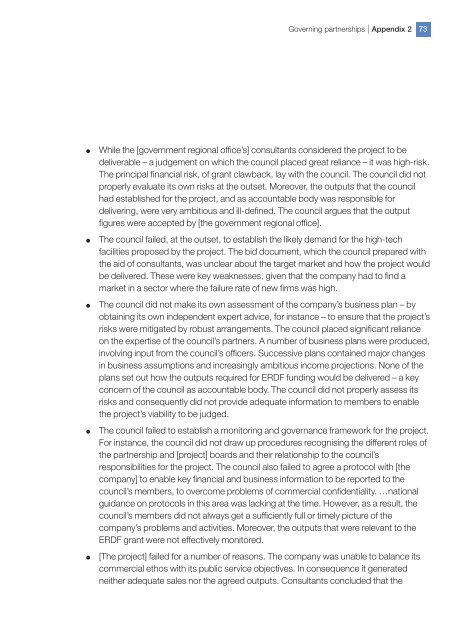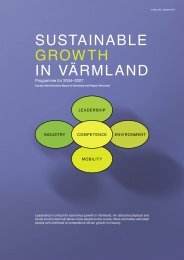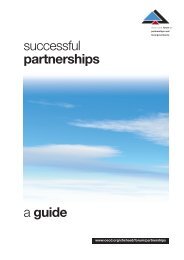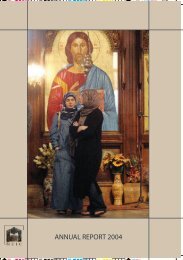Bridging the accountability gap - Audit Commission
Bridging the accountability gap - Audit Commission
Bridging the accountability gap - Audit Commission
Create successful ePaper yourself
Turn your PDF publications into a flip-book with our unique Google optimized e-Paper software.
Governing partnerships | Appendix 2 73<br />
●<br />
●<br />
●<br />
●<br />
●<br />
While <strong>the</strong> [government regional office’s] consultants considered <strong>the</strong> project to be<br />
deliverable – a judgement on which <strong>the</strong> council placed great reliance – it was high-risk.<br />
The principal financial risk, of grant clawback, lay with <strong>the</strong> council. The council did not<br />
properly evaluate its own risks at <strong>the</strong> outset. Moreover, <strong>the</strong> outputs that <strong>the</strong> council<br />
had established for <strong>the</strong> project, and as accountable body was responsible for<br />
delivering, were very ambitious and ill-defined. The council argues that <strong>the</strong> output<br />
figures were accepted by [<strong>the</strong> government regional office].<br />
The council failed, at <strong>the</strong> outset, to establish <strong>the</strong> likely demand for <strong>the</strong> high-tech<br />
facilities proposed by <strong>the</strong> project. The bid document, which <strong>the</strong> council prepared with<br />
<strong>the</strong> aid of consultants, was unclear about <strong>the</strong> target market and how <strong>the</strong> project would<br />
be delivered. These were key weaknesses, given that <strong>the</strong> company had to find a<br />
market in a sector where <strong>the</strong> failure rate of new firms was high.<br />
The council did not make its own assessment of <strong>the</strong> company’s business plan – by<br />
obtaining its own independent expert advice, for instance – to ensure that <strong>the</strong> project’s<br />
risks were mitigated by robust arrangements. The council placed significant reliance<br />
on <strong>the</strong> expertise of <strong>the</strong> council’s partners. A number of business plans were produced,<br />
involving input from <strong>the</strong> council’s officers. Successive plans contained major changes<br />
in business assumptions and increasingly ambitious income projections. None of <strong>the</strong><br />
plans set out how <strong>the</strong> outputs required for ERDF funding would be delivered – a key<br />
concern of <strong>the</strong> council as accountable body. The council did not properly assess its<br />
risks and consequently did not provide adequate information to members to enable<br />
<strong>the</strong> project’s viability to be judged.<br />
The council failed to establish a monitoring and governance framework for <strong>the</strong> project.<br />
For instance, <strong>the</strong> council did not draw up procedures recognising <strong>the</strong> different roles of<br />
<strong>the</strong> partnership and [project] boards and <strong>the</strong>ir relationship to <strong>the</strong> council’s<br />
responsibilities for <strong>the</strong> project. The council also failed to agree a protocol with [<strong>the</strong><br />
company] to enable key financial and business information to be reported to <strong>the</strong><br />
council’s members, to overcome problems of commercial confidentiality. …national<br />
guidance on protocols in this area was lacking at <strong>the</strong> time. However, as a result, <strong>the</strong><br />
council’s members did not always get a sufficiently full or timely picture of <strong>the</strong><br />
company’s problems and activities. Moreover, <strong>the</strong> outputs that were relevant to <strong>the</strong><br />
ERDF grant were not effectively monitored.<br />
[The project] failed for a number of reasons. The company was unable to balance its<br />
commercial ethos with its public service objectives. In consequence it generated<br />
nei<strong>the</strong>r adequate sales nor <strong>the</strong> agreed outputs. Consultants concluded that <strong>the</strong>








